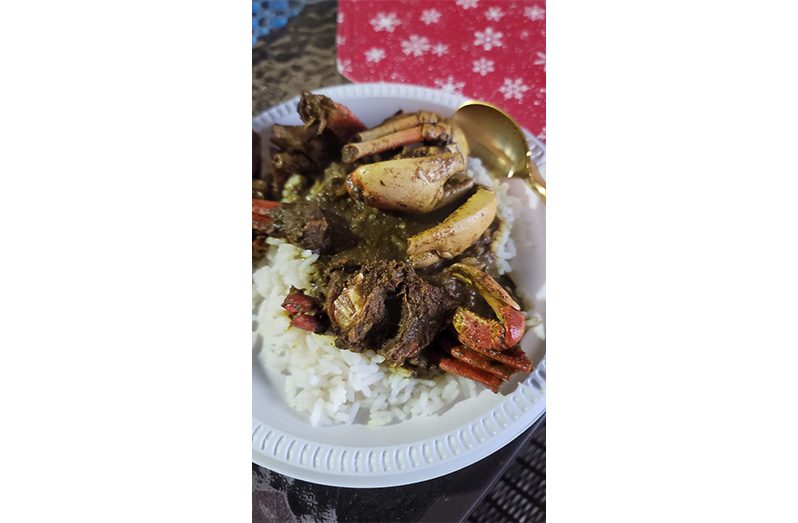AT the break of dawn, our convoy of cars rolled out—siblings, cousins, children, and grandparents—twenty of us in total, all buzzing with excitement. The plan? A family adventure like no other: our very first time crab catching, together.
In the past, a trip to Mahaica meant winding roads through the city to get to the East Coast, early morning yawns, and a chorus of “Are we there yet?” from restless kids. But this time was different. Thanks to the new Ogle Bypass Road, the journey was smooth, quick, and almost effortless. With the windows down and cool morning air rushing in, we zipped out of the city and into the countryside with ease. By the time the first streaks of gold broke across the sky, we were already deep into our adventure.
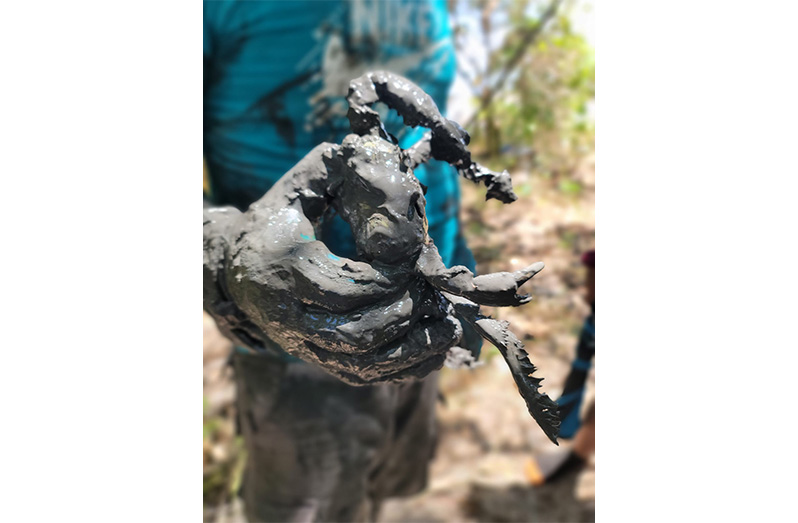
No trip to Mahaica is complete without a quick detour to Spready’s, the beloved roadside stop known for its snacks, cold drinks, and easy-going vibe. It’s more than just a shop—it’s part of the road trip ritual. We piled out of the vehicles, kids tumbling after us, and stretched our legs. Inside, the men stocked up on essentials: water, drinks, and a few extra treats to keep the children happy. Outside, the women gathered under the benab, enjoying a cool breeze and swapping guesses about how many crabs we’d actually catch. “Let’s hope we bring home more crabs than mosquito bites,” my aunt joked as we loaded up again. Fuelled and ready, we set off, the excitement in our convoy even higher now that we were getting closer to our destination.
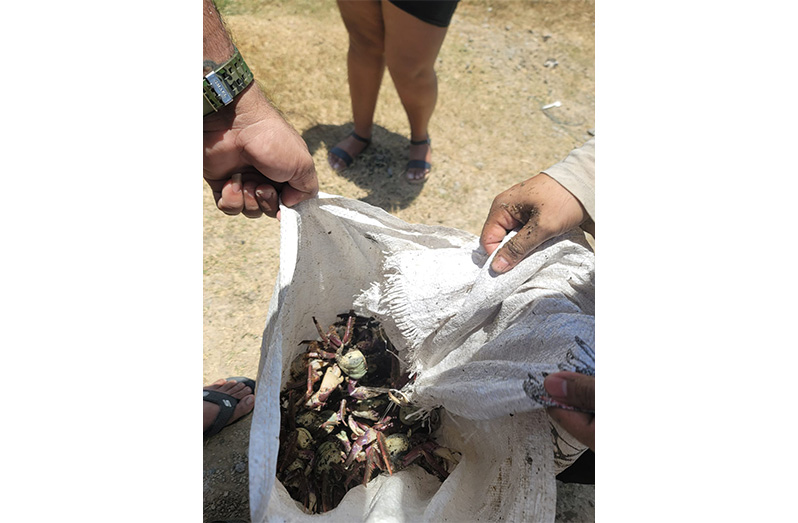
Originally, we had set our sights on Abary, a well-known crabbing spot. We were headed there, then midway on our journey someone suggested Fairfield instead. “It’s supposed to be good crabbing grounds,” they said. None of us had ever been there, and we had no idea what to expect. But that’s how our family likes to roll—always ready for adventure, even if it comes with a little uncertainty. A quick detour brought us to a winding dirt road; much to the excitement of the toddlers on board, the roadway was littered with cattle and sheep grazing idly by. After a ten-minute cruise, the path abruptly ended and gave way to the mangrove bush, hiding our clawed treasures within.
The moment our boots hit the dirt, the men sprang into action. Not a minute to spare; armed with sticks, rice bags, and the confidence of hunters on a mission, they headed straight for the mangroves. The rest of us followed behind, navigating the narrow, rickety overpass that bridged the water-filled gap. We were laughing at their exaggerated bravado, while secretly hoping they wouldn’t come running back at the first snap of a crab claw. The children squealed as they watched their fathers and uncles wade deeper into the sticky mud. It wasn’t long before shouts of triumph rang out. “Got one!” someone yelled, holding up a fat, angry crab whose claws waved furiously in protest. Cheers erupted from the riverbank, and just like that, the adventure was in full swing.
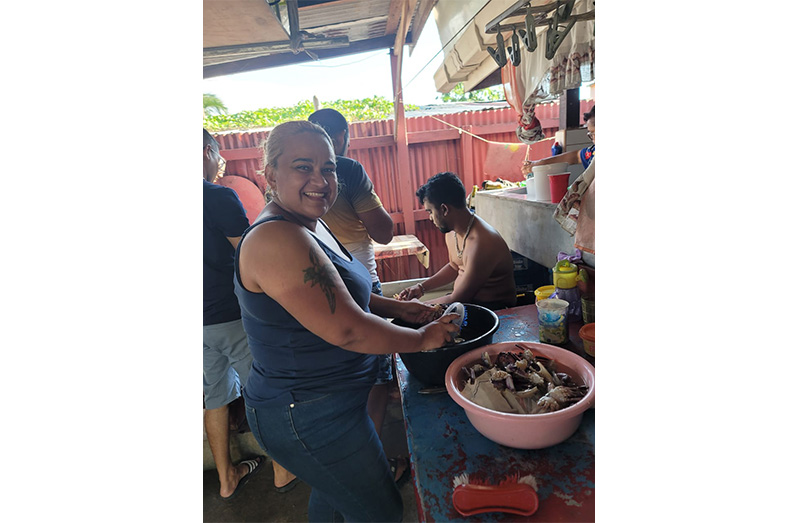
The crabbing was messy, muddy, and hilariously chaotic. Crabs darted under roots and into holes while grown men lunged after them like kids in a playground. The cheerleading children standing on the bank, peeking through the thick underbrush, tried their best to call out when they saw movement in the mud. Every escape sparked a chorus of groans and laughter, and when one uncle became stuck, mud splattering in every direction, he became the day’s running joke. By mid-morning, though the catch was sparse, the men were wearing their mud like a badge of honour.
While they were deep in their crabbing mission, a few of us ladies decided to take on an adventure of our own. We’d heard whispers of a golden beach hidden beyond the mangroves, and despite the sun blazing down like fire and the mud threatening to swallow our boots, curiosity won.
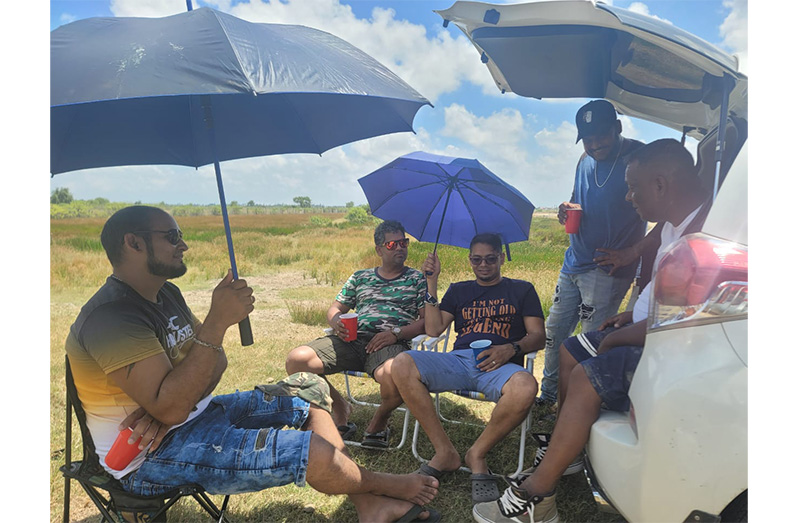
The trek was no joke. The heat was relentless, making the air shimmer and our skin prickle. Mud sucked at our feet with every step, thick and unforgiving. At one point, we had to climb over jagged rocks, carefully balancing as the gaping void below threatened to swallow our ankles with one misstep. Sweat dripped, laughter bubbled, and there were more than a few moments of, “Whose idea was this again?” keeping us going. But when we finally broke through the last stand of mangroves, our breath caught.
Before us lay a stretch of untouched golden sand, glowing in the sunlight. The water shimmered like smooth chocolate, as the silted waves washed in from the sea. We had long kicked off our muddy boots to wade through the sticky swamp and eagerly made our way to the water’s edge to let the cool waves wash over our tired feet. Ahh, I felt the heat and struggle melting away with the lapping waves. It was a private slice of paradise—a secret reward for our determination. “Okay,” I said between laughs, “this was totally worth the sunburn.”
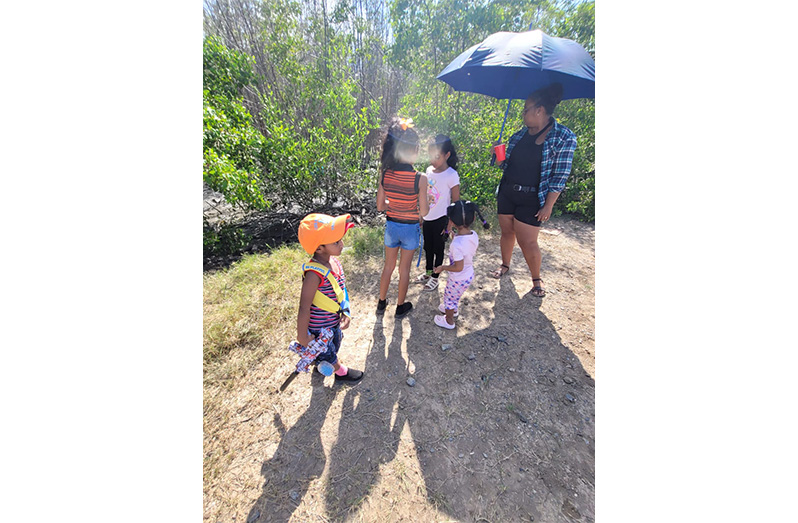
By the time we made it to where the menfolk were, they were triumphant. They, and the crabs, were washed clean in a nearby canal, their shells gleaming as they were packed safely in water for the journey home.
But before heading out, we lingered under the only shade nearby—the open car trunks—letting the adrenaline wear off and the quiet of the countryside sink in. Drinks were passed around, laughter flowed, and the morning heat felt less punishing with a cold beverage in hand. Nearby, other groups of crabbers gathered too, each eager to share their own strategies for snagging the clawed creatures. Stories were swapped over shared drinks, each tale more dramatic than the last, proof that crab catching wasn’t just a hunt—it was a culture, a way to connect.
It was nearly 11 a.m. by the time we finally packed up and rolled out, tired and burnt, crabs in tow and smiles on our faces.
The conversation on the return journey was over whose house was best to clean and prepare our catch—the criteria ranging from who was closer to who had the biggest cahari. The choices were Providence, Friendship, and Timehri. Eventually we settled on our uncle’s place in Friendship, a great midpoint for everyone.
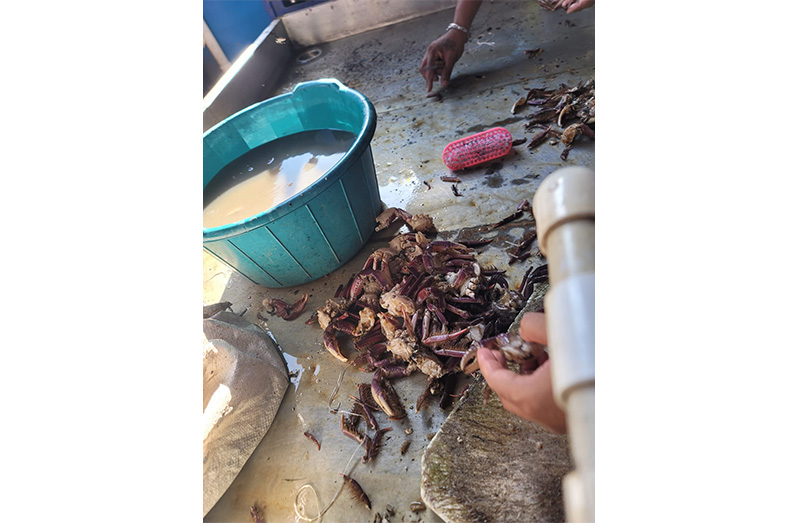
When we arrived, the excitement continued. The men didn’t just claim victory as crab catchers—they also took charge of the cooking, determined to turn their hard-earned catch into a feast. Meanwhile, the women pitched in with cleaning the crabs and tending to the kids, who were just as wild and energetic as the crabs themselves.
It was a scene of harmony and tradition. The kitchen came alive with sizzling spices—the curry, masala, geerah, garlic, onions, and fiery wiri wiri peppers hit the hot oil, filling the kitchen with their mouth-watering scent. Coconut milk bubbled gently as the crabs were added, claws and all, into the pot. The men stirred pots with pride, the women orchestrated everything quietly but efficiently, and the children darted between legs, sneaking peeks at the bubbling curry. “This curry better taste good—these crabs were hard to catch,” one aunt teased, sparking laughter from everyone.
When the crab curry was finally ready, we gathered around the table, our hunger matched only by our excitement. The first bite was pure bliss: tender crab meat soaked in a rich, spicy coconut sauce, served with steaming rice and fiery pepper sauce on the side.
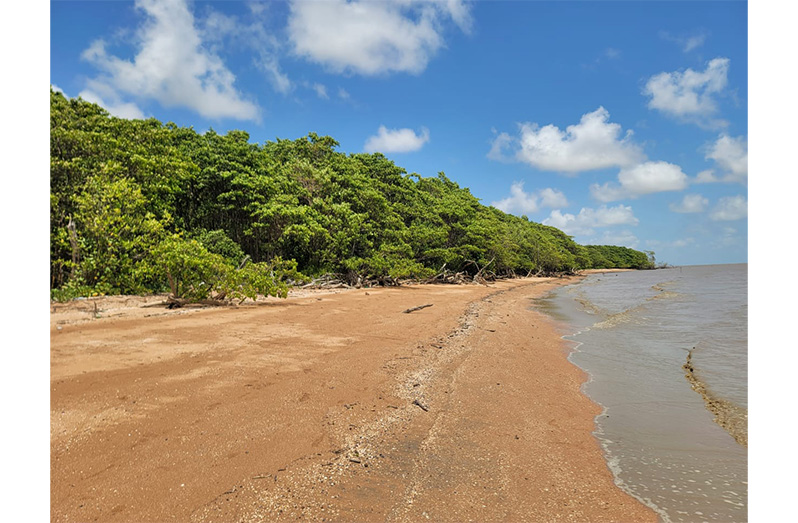
As we ate, the morning’s chaos turned into an endless reel of stories—the uncle who was stuck in the mud now being portrayed as having been swallowed whole by it, the giant crab that got away growing larger with every retelling, and our beach trek becoming a tale of heroic proportions.
What started as a spur-of-the-moment outing became something deeper. It wasn’t just about catching crabs or finding a secret beach—it was about teamwork, discovery, and creating new memories together. The men had their victory in the mud and the kitchen. The women carved out a little adventure of their own. The kids got a taste of both, wide-eyed and thrilled by it all. Somewhere between the mangrove roots, the golden sand, the clinking glasses, and the simmering curry pot, a new family tradition was born.
As the sun set and we sat back, full and content, it came to me: we didn’t just catch crabs today, we caught memories. It was a very simplified way to look at it, but while the mud will wash away, the cuts and scrapes will be treated, the crabs will be eaten, and the sunburns will fade—the laughter and love of that day will stay with us forever.
And next time, maybe—just maybe—the men will coax the women to join in the crab catching.




.jpg)



